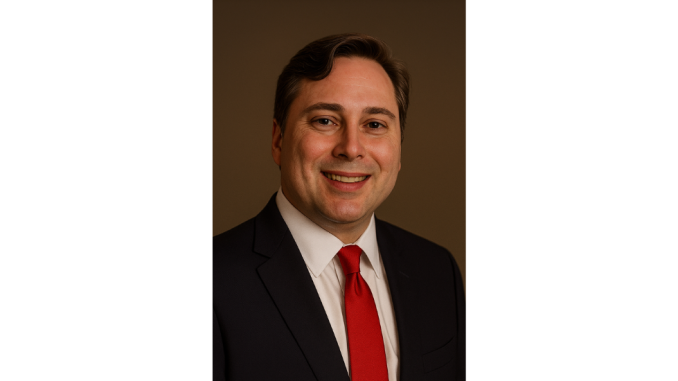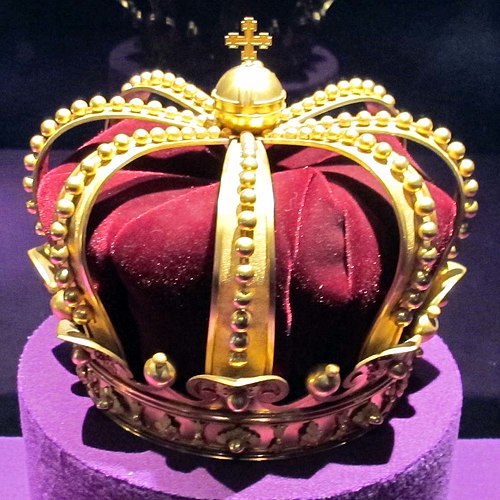
-
By Lucian Voinea – Bucharest, Romania
The Lord and His Ideas
The Lord of Whelmstone assured me that he has no commercial interests in Romania. “This is not about profit,” he said. “It’s about principle.” He told me, “I support constitutional monarchy. It would be great for tourism, national pride, and history.” He added, “I have always embraced my heritage. I am proud of it and proud to be an American. It is not new. I have always been fascinated by history and now I am simply writing about it more.” At one point, the Lord of Whelmstone offered, with enthusiasm, to explain in detail how the restoration of the Romanian monarchy could be made legally possible — what steps would need to be taken by the government and how the constitution could be amended to allow it. I told him, as politely as possible, that I was sure he had given this a great deal of thought, but that I was not particularly interested. He smiled, undeterred, as though he had heard such replies many times before. It all sounded very grand, but also very old-fashioned. To my ears, these were not the words of a realist. They were the words of a man who believes the past can simply be repeated.
When I asked about his failed political career in the United States, he stiffened. “I am proud of my years in politics,” he said, his voice suddenly sharp. “You are crossing a line by suggesting otherwise.” Perhaps I was, but journalism does not exist to flatter. Vorba aceea: adevărul ustură. The truth stings.
At one point, the Lord of Whelmstone offered to come to Romania himself for an in-person interview. He said it as if he were boarding a local train and not crossing an ocean. For him, it seemed of no great consequence. Most people in Romania will never get to travel overseas, but for him it sounded like just another afternoon. He added with a laugh that he would not be experiencing the harsh European winter while sunning himself in Ormond Beach, Florida. Norocul nostru nu poate fi al lui. Our luck is not his luck.
It all sounded very grand, but also very old-fashioned. To my ears, these were not the words of a realist. They were the words of a man who believes the past can simply be repeated.
When I asked about his failed political career in the United States, he stiffened. “I am proud of my years in politics,” he said, his voice suddenly sharp. “You are crossing a line by suggesting otherwise.” Perhaps I was, but journalism does not exist to flatter. Vorba aceea: adevărul ustură. The truth stings.
At one point, the Lord of Whelmstone offered to come to Romania himself for an in-person interview. He said it as if he were boarding a local train and not crossing an ocean. For him, it seemed of no great consequence. Most people in Romania will never get to travel overseas, but for him it sounded like just another afternoon. He added with a laugh that he would not be experiencing the harsh European winter while sunning himself in Ormond Beach, Florida. Norocul nostru nu poate fi al lui. Our luck is not his luck.
The Romanian Reality
Romania has no need for kings again. The idea that we should restore a throne belongs to another century. The late King Michael’s daughter, Margareta, who calls herself “Custodian of the Romanian Crown,” is of a German royal family. She does not represent the Romanian people.
An Outdated Aristocrat
Col. Alexander George, the Lord of Whelmstone, is deeply in love with his own titles. “Colonel,” “Lord of Whelmstone,” “Baron,” and perhaps more to come. He recites them like prayers. He clings to them because they give him a sense of purpose that politics could not. He believes ceremony equals leadership, but the two are not the same. His worldview belongs in an age when lineage meant legitimacy. Today, that thinking is simply praf și pulbere — dust and ashes. He defends monarchy as “stable,” “beautiful,” and “inspiring.” To me, it is a gilded cage. I asked if he believes the United States should ever have a monarchy. He laughed and said, “That’s absolutely ridiculous.” Indeed. But why then should Romanians not find his own idea just as ridiculous?Editor’s Note
To be fair, the Lord of Whelmstone treated me with civility. He was patient, articulate, and even invited me to meet in person “to discuss the merits” of his beliefs. Perhaps one day, when I am not fighting my own rent deadlines in Bucharest, I will take him up on that offer. Still, I find his world to be one of fantasy and ceremony. He is a man too charmed by power’s costume, too sure that titles can give a soul to nations. His charities and polite manners are genuine, but his politics are the perfume of an age that should stay buried. If one day a Romanian politician seriously entertains the restoration of the monarchy, I will lose respect for that person entirely. Cine uită, nu merită. Whoever forgets does not deserve. Omul sfințește locul. The person sanctifies the place. Romania’s crown belongs in the museum, not on anyone’s head.About the author:
Lucian Voinea is a freelance journalist based in Bucharest. He covers world affairs and European politics and spent six years living in Los Angeles, where he learned both the glamour and the emptiness that often hide behind power. He writes regularly on cultural and political issues in Eastern Europe.
